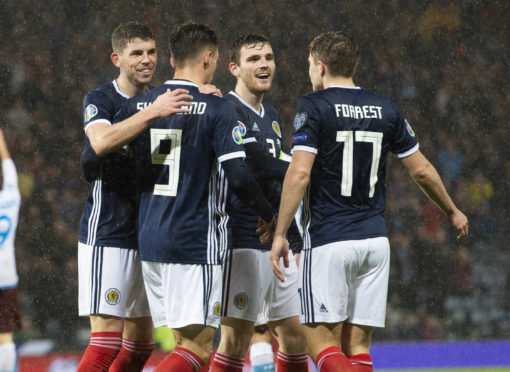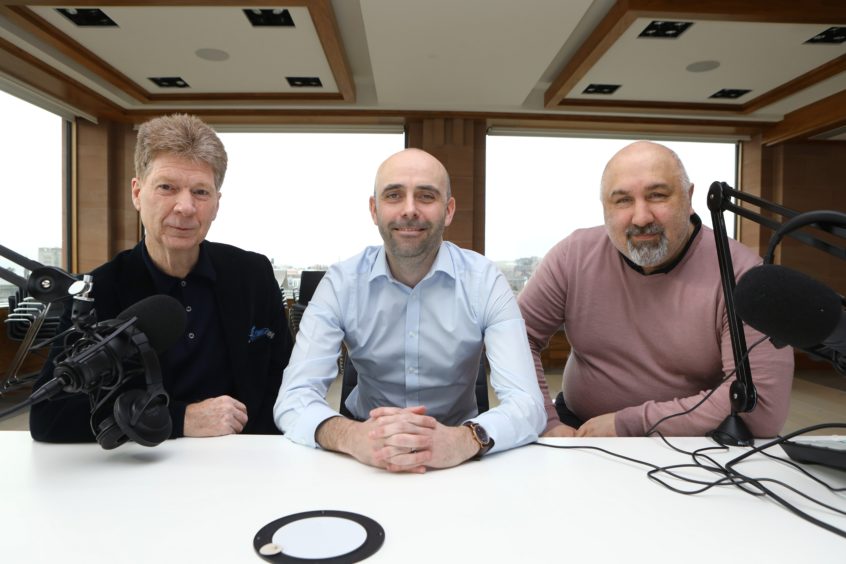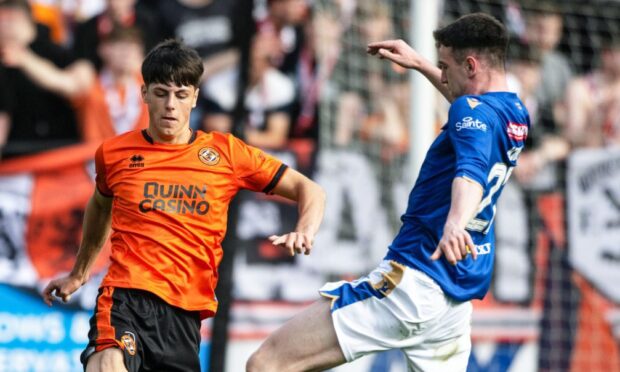The return of Scottish football is finally in sight.
With Premiership clubs allowed to start training on June 11, we can start to speculate about what the new season might bring.
Many bridges remain to be crossed, not least what happens if medical advice changes, what happens to the lower leagues, and whether or not there is to be reconstruction of the divisions.
However, at least there’s finally light at the end of the tunnel and now we can plan ahead with some positivity.
On this week’s Courier Talking Football podcast, when Dundee United manager Robbie Neilson and sporting director Tony Asghar joined Eric Nicolson and myself, there was a distinct sense of optimism from both men, but also a degree of caution.
The manager has new player targets but, with all of the uncertainty, moves were delayed or put on hold.
With luck, he can now pursue those with added urgency to ensure that United are capable of staying in a division which will be a much tougher proposition than the Championship.
The speed of thought, touch and movement in the top flight are all several notches up from where United have been and players with those extra qualities will be needed.
The sporting director and the manager both see America and the lower English leagues as potentially fruitful areas in the search for new faces and with the TV broadcasting deal now in place to provide finance, some new additions seem possible.
United have also made peace with the Dundee United Supporters Foundation, which will give £100,000 of financial assistance to help upgrade the youth academy facility at Gussie Park.
This is important, coming at a time when club and fans need to be as tight as a drum; and the bond between them has now been strengthened to avoid the schisms prevalent under the previous regime.
That’s a worthwhile achievement.
How fans will adapt to watching football played behind closed doors on live-streamed television with SKY, or on club television channels, is unknown.
Even radio coverage will sound completely different since the roar of the crowd and the atmosphere of the game on the wireless are inextricably linked.
I’ve been hooked on the Bundesliga since it restarted and although there’s no comparison with being at a game in the flesh, or watching it on television with the thrill and theatre of a crowd, it’s just been great to have my fix of football again.
Truly, absence makes the heart grow fonder, and at least this way we can now eagerly await something approaching a return to normality.
Many things have been absent during this pandemic: football is just the most important of the least important things missed.
But its return is welcome.
The game binds communities, families and friends in towns and cities in a common endeavour and purpose.
It’s been a huge loss for many folk and with the return of action, even in these unusual circumstances without fans, it’ll still feel as though the rubicon has been crossed – and that at least one element of regular life is returning.




